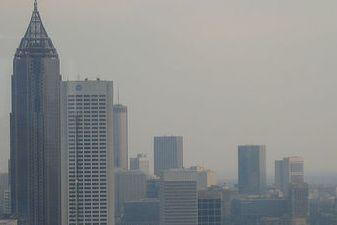
Section Branding
Header Content
Georgia Monitoring Air Quality
Primary Content

State officials will monitor ground-level ozone again this summer, as they have for years.
But this year could be crucial in determining which Georgia cities will be designated as air polluters.
If they get the federal non-attainment status, cities like Augusta, Columbus and Macon for the first time could have a costly cleanup on their hands. They would likely have to find ways to restrict pollution from cars, power plants and to a lesser extent, industry. Atlanta already deals with such issues, but this time would be the first that mid-sized cities in Georgia reached non-attainment. That's largely due to tougher federal standards implemented in 2008 to curb air pollution.
Last year, however, ozone levels dropped and they may be lower again in 2010, says Jac Capp, chief of the state Environmental Protection Division's air protection branch.
"Automobile emissions are much lower today than they were years ago...power plant emissions are much lower...and they are going to continue to go down," says Capp.
The bad economy has also meant less power consumption by businesses and less traffic, which may have also contributed to the drop.
In addition, U.S. Environmental Protection Agency under President Obama earlier this year proposed even tougher air pollution standards than the ones in 2008. Since the regulations require an average of ozone levels over three years, the proposal gives Georgia an extra year of lower ozone levels to factor into that average.
But depending on the EPA's final decision, those standards could possibly be so tough that much of the state could risk non-attainment.
Ground-level ozone is a component of smog, which triggers respiratory illnesses.
Tags: Augusta, Georgia Environmental Protection Division, Georgia EPD, EPA, U.S. Environmental Protection Agency, Jac Capp
